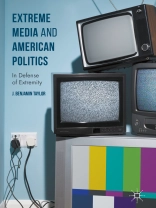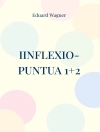This book asks: what are extreme television media, and are they actually bad for American politics? Taylor explores these questions, and how these media affect political knowledge, trust, efficacy, tolerance, policy attitudes, and political behaviors. Using experiments and data from the National Annenberg Election Study, this book shows how extreme media create both positive and negative externalities in American politics. Many criticize these media because of their bombastic nature, but bombast and affect also create positive effects for some consumers. Previous research shows partisan media exacerbate polarization, and those findings are taken further on immigration policy here. However, they also increase political knowledge, increase internal efficacy, and cause their viewers to engage in informal political behaviors like political discussion and advocacy. The findings suggest there is much to be gained from these media market entrepreneurs, and we should be wary of paintingwith too broad a brush about their negative effects.
Mục lục
Placing Extreme Television Media In Their Historical And Economic Context .- A Deep Dive Into Extreme Television Media Selection .- The Educative Effects Of Extreme Television Media .- Exploring The Effect Of Extreme Media On Political .- The Puzzle Of Extreme Media And Political Tolerance: An Immigration Case Study .- Political Behavior And Extreme Television Media Consumption .- The Meaning And Future Of Extreme Media In American Politics.
Giới thiệu về tác giả
J. Benjamin Taylor is Assistant Professor of Political Science at the University of North Carolina Wilmington, USA. He researches and teaches on American political behavior. His work has been published in
Political Communication,
State Politics & Policy Quarterly,
American Politics Research,
Politics & Religion, and
Presidential Studies Quarterly.












